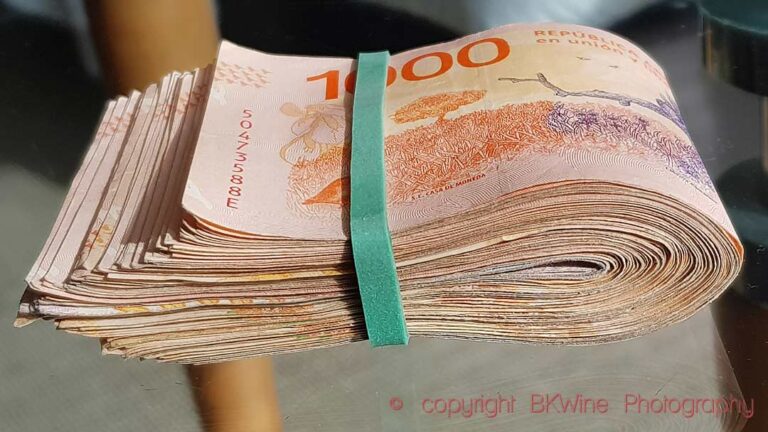“Can a Swedish resident import wine for personal consumption, without having to go through the monopoly, or is it completely out of the question?”
This is a question that pops up quite often, both from Swedish residents and from wine producers / wine sellers.
This is a first version of the answer, perhaps not 100% exact (it is difficult to be that) nor 100% to be taken as legal advice:
Yes he can. Under certain conditions.
Since a few years it is OK for a Swedish resident to buy wine from a seller outside of Sweden but inside the EU. This is a result of EU competition laws. However, this is legal only under certain conditions.
For it to be entirely legal it has to be declared to the Swedish customs *before* the wines are shipped to Sweden and Swedish taxes have to be paid *before* the wine is shipped. (or more precisely, a guarantee deposit has to be done with the customs)
(This means that taxes – VAT and other – may have to be paid both in the selling country and in Sweden: double VAT taxation! This is the result of a famous EU case where a Dutchman imported a lot of wine to the Netherlands and refused to pay Dutch VAT on it since VAT was already paid in the source country. The “Joustra case” was taken to EU court and the Dutch government won…)
Some claim that in addition to those conditions the person responsible for the shipping (this can be the seller or a shipping company) has to be registered (for this purpose) with the Swedish tax authorities. This is not necessarily so in practice.
In reality, these are the options:
1. Buy from a specialised company: There are a number of companies (WineFinder, Australian Wine Club…) that are Swedish but that have set up an office (letter-box or real) in Denmark or Germany to be able to sell directly to Swedish customer. They generally do “full service”: register with the tax authorities, pay Swedish taxes, organise the shipping, deliver to the door. We have even met a wine producer (in Italy) who had done all the formalities and registration with the Swedish authorities to be able to sell directly to Swedes.
2. Buy from anyone and pay taxes oneself: A Swedish resident can buy wine from a seller (not one of those above) in the EU directly. He can buy from an internet shop, a wine producer or any other type of seller. The Swedish buyer declares the purchase to the Swedish customs in advance and pays the Swedish taxes (also in Advance). He (or the seller) arranges for shipping and all is well. (This seems to be “tolerated” but perhaps not quite formally permitted.)
3. Buy and hope for the best: A Swedish resident can buy from a wine seller and then not bother about the customs and tax formalities. This is clearly illegal but many do take the risk. In the majority of the cases the delivery seems to arrive without a problem. I don’t think the seller runs any risk, but the buyer risks losing his wine and being fined (I assume). Actually, reading the customs information pages it seems that what happens is that the buyer will have to pay taxes (and some other additional charges) but will actually get his bottles in the end, even if he had not declared it beforehand. More expensively of course.
This is just a quick overview of how we currently understand how it works.
If anyone has corrections or comments, or even personal experience of how it works, we are happy to update the description!
(In parenthesis one can add that the Swedish monopoly for wine and spirits retail, called Systembolaget, is an odd monopoly. In reality the monopoly only supplies about 50% of the alcohol that Swedes drink. The rest is supplied by: people carrying with them alcohol when travelling (quite a substantial amount!), restaurants, smuggling, and illegal production. The companies described under 1) above currently accounts only for a marginal volume. Quite some monopoly! And it is considered to be a vital tool for public health!)
More info from the Swedish customs authority:
https://www.tullverket.se/innehallao/f/fragorochsvar/fragorochsvarforprivatpersoner.4.16ca6de0120cf835feb80001238.html










5 Responses
It is a vital tool for public health!
I love wine and I cannot find a better supplier than the Systembolaget. If the monopoly where to disappear, I would not be able to buy as good wines as I am today.
A lot of people/companies would make more money but as a consumer I would be worse off.
If there were not a monopoly in Sweden there would be a much bigger and broader selection of wines available. Look at what is available on other markets. In Denmark for instance, without a monopoly, they have some 20 000 wines to choose from. In Sweden there is a paltry 1500, if even. And the consumer would most likely get better service. Monopolies are rarely known to be the epitome of consumer service and consumer friendliness. It was not long ago the monopoly stores were unfriendly, guilt-inflicting, solely over-the-counter shops, with brown paper bags… Remember?
Read more on this on Monopolbloggen.
-P
Systembolaget consistently picks superb wines and because it buys in bulk, gets these wines at a lower price than you’d pay elsewhere.
The consequence is that Swedish drinkers get the best wine at the lowest prices and don’t have to wade through a mire of over-priced poor quality wines.
If you want something Systembolaget don’t have, just import it yourself.
Wilson,
That is indeed the myth that the Systembolaget wants everyone to believe. Did you read it in their annual report?
It is not true.
Buying wines in large quantities in bulk, at minimum prices, usually means that they get very “industrial” products, far from the description “superb”.
If you believe that Swedish drinkers get lowest prices and excellent quality you probably have never been to a Systembolaget shop where there is pallet after pallet of mediocre bag-in-box industrial wine to choose from but almost nothing with an ounce of individuality and character. (Except a handful of amarones of course.)
Plus much more expensively than in most other western European countries.
That, unfortunately, is the reality for Swedish wine drinkers.